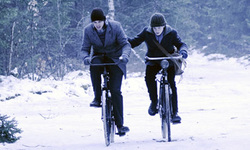 By Heather It's getting harder isn't it? Over the winter large hot meals look ever more inviting, going outside for a jog is the last thing you want to do on most days and the couch keeps saying, "get your duvet and come hang with me". Well, if you're not facing these problems, "lucky you", is all I can say. I personally prefer outdoor exercise and last year, for the first ever, I managed to maintain my outside jogging regime through the winter. This year, I can add running in the rain to my ever more hardcore exercise profile (it wasn't planned, I'm not that mad!). Here are a few tips for maintaining your motivation during the winter: 1. Go out around midday (somewhere between 12 and 2 p.m.), even during the winter, it's always warmer around then. 2. Wear more layers as it gets colder. I normally wear three layers on the coldest days. A long sleeved shirt, a t-shirt and a sweat shirt. 3. Wear gloves. They really help to keep you warm. 4. Get a running mate. I prefer to run alone because I think better if I am on my own but some people find it harder to skip their jog if there's someone else that would be disappointed. 5. Don't over do it. I only jog outside twice a week, 5km each time. If my target was higher than this I probably wouldn't go out at all. 6. Exercise indoors. Get a DVD that you like. You'll be more inclined to do the work out routines if they are no more 30 or 45 minutes. 7. TV time is work out time. I never used to exercise when I was watching TV but I've found it to be a most convenient time to work on my leg drops (I'm trying to build my resistance) and an even better time to lift weights. If you manage to do just 15 minutes that's good enough. If the weather is really bad: snow or rain, that's a good reason not to go out. If you injure yourself you won't be able to exercise for a very long time so if there's a week when you simply can't go out, then don't. Obviously, if you live in a country that is covered in snow for much of the winter it makes much more sense to join a gym during the winter months. Fortunately for me, London does not usually get snowed over for more than a week throughout the winter period.  Although your personal finances and your business success are my primary interest, I believe you only operate at peak efficiency when you're fit and healthy. If you feel good, it filters through to your work. To help you with that, click for your free ebook: The Quick Guide to Sexy
0 Comments
 By Heather How often have you proudly eaten well at breakfast, walked out with your chest held high and then later in the day wondered: "where did it all go wrong?"!! It's very easy to eat a good healthy breakfast, most people manage at least that. However, at about mid-morning bad food decisions start coming into play! I have a few tricks that have helped me curb the mid-morning/afternoon hunger pangs:  1. Stay hydrated What you think is a hunger signal could just be thirst, many people get them mixed up. In fact, I don't even wait to get the signal before I drink my water, I drink on schedule:
Nowadays I find that I am too busy for a mid-morning glass of water nor do I feel I need a snack. I always wanted a mid-morning snack when I was in a regular job but in my life as an entrepreneur: almost never! Perhaps that was a sign of boredom. Do I drink anything else? I usually have one cup of tea after my first two glasses of water in the morning and that's it. I won't usually drink anything else even if I go out for a meal. Water is my staple drink, followed by tea. 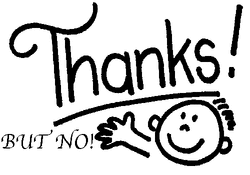 2. "No, thank you." Make this your standard response when colleagues offer you food. We often go astray because friends and colleagues offer us tasty treats. Say no even if you want to say yes! Unfortunately, you will find your colleagues forcing/encouraging you to eat something or other so you need to be strong, you can do it!  3. Standardise your lunch! Do you decide what you want to eat for lunch AT lunch? Bad idea. Making food decisions when you are hungry will ALWAYS lead to a poor decision. You need to decide your lunch when you're not hungry. Personally, I have a list of restaurants that produce healthy food that I frequent. In addition, I only eat given things from their menu, typically their soups and salads.  4. Take snacks to work or wherever you are going that day If you have a fruit or yoghurt to hand you have no reason to buy chocolates, granola bars and other high-calories snacks. This alone helped to control my temptation to buy biscuits and chocolates. My husband started me off by giving me fruit to take to work everyday then at some point I got used to it and started packing it myself. It does work.  Although your personal finances and your business success are my primary interest, I believe you only operate at peak efficiency when you're fit and healthy. If you feel good, it filters through to your work. To help you with that, click for your free ebook: The Quick Guide to Sexy You can be thin on the outside but fat on the inside...it's what's on the inside that counts!18/11/2012 By Dr Harry Be warned, this video is NOT for the faint hearted. If shock tactics are what work for you however, don't waste any time in checking it out. Have you heard the expression "It's what is on the inside that counts?" Turns out, whoever said that had it spot on. The fat on the INSIDE of your body could be doing you more harm than the cellulite you can see on the outside. Why? Not only is this fat so dangerous because it literally coats your internal vital organs like your heart and liver but it is totally invisible to you (under normal circumstances). Unless you are a fan of TV shows like Plastic Surgery Live (and to be honest, I am too squeamish), you are unlikely to have seen the fat that's on the inside. So next time you are about to tuck into that burger, ask for dessert at a restaurant or take an extra portion at an all-you-can-eat buffet, consider the build up of fat that's happening out of sight. And make sure out of sight does NOT equal out of mind.  Although your personal finances and your business success are my primary interest, I believe you only operate at peak efficiency when you're fit and healthy. If you feel good, it filters through to your work. To help you with that, click for your free ebook: The Quick Guide to Sexy
HOMEMADE is a Semifinalist in the $200,000 FOCUS FORWARD Filmmaker Competition and is in the running to become the $100,000 Grand Prize Winner. It could also be named an Audience Favorite if it's among the ten that receives the most votes. If you love it, vote for it. Click on the VOTE button in the top right corner of the video player. Note that voting may not be available on all mobile platforms, and browser cookies must be enabled to vote.
Electricity in Malawi is a luxury many cannot afford. Installing a transformer to cater one area can cost up to MK 5,000,000.00 (USD18,000). This is the story of two young men from the village of Nkhatabay, Malawi who through self taught engineering have generated electricity powering more than 50 villages through invention of homeade generators locally designed and made from scrap metals. Director/Producer: Villant Jana Camera: Bwanali Makote Sound: Yamikani Lozi Editor: Villant Jana Music: Firstcom Inventors: Hastings Mkandawire, Jimmy Mzilahowa Location: Nkhatabay, Malawi 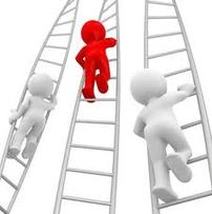 I went to a Women in Business seminar targeted at helping people progress in their businesses and careers. There were many useful insights that I would like to share as you may also find them useful. Here are my notes from the event:
 SMARTER NETWORKING - 60 Second Pitch People in power have shared that when someone approaches them to pitch i.e. sell themselves, an idea or a product, they are more receptive if you:
The speaker shared a story about a lady at a networking event that she invited to chat. She looked over her shoulder the whole time and walked off mid sentence! This lady didn't bother to get to know who she was being invited into a conversation with and she could have failed to capitalise on a conversation with the most valuable contact for her business on that day. Objective of networking: to help as many people as possible. So, your intro at a networking event should help people understand: - How you could help: them, their organisation or someone they know BRAND: what people say about you when you're not in the room.  BEST INTRO WHEN NETWORKING What brought you here today? Rather than - what do you do? Why? Many people hate being asked what they do because for instance, they do lots of things, or they're unemployed or the question is so broad that it's hard to give a decent answer. How do you join a group that has already formed? Ask: may I join you? How do you approach a group of men without them thinking you are hitting on them in any way? I approach them in the same way that I would a group of women. There are three stages in your relationship building: TYPES OF IMPACT
If you think a man has misinterpreted you "immediate" impact, work on that with the "interaction" and "follow-up" impact. 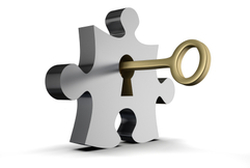 ON PROGRESSING IN LIFE AND CAREER A great quotes was shared: "Everything you want is out there waiting for you to ask. Everything you want also wants you. But you have to take ACTION to get it." Jack Canfield Nikki Hutchison said you should only include recent achievements as old achievements are irrelevant. I don't agree. Some achievements will always help people to build a picture of who you are, e.g. I got a scholarship to the University of Cambridge straight out of one of the ten poorest countries in the world, Malawi; I subsequently became the first person to graduate with a first class in Economics in the 3rd largest college in Cambridge - they'd been allowing women into the college since the 80s. Even when I am 80, that will be viewed as an achievement to me and to others. Interesting fact: 22% of employers are less likely to hire without a thank you follow up [there were other points but I couldn't note them down fast enough!] OTHER TIPS FROM WOMEN THAT HAVE GROWN
b) Want a pay rise c) Want a promotion Many women hate boasting so find a non-boastful format for self-promotion. If you don't say what YOU want, you let people decide what is good enough for you!
 FINDING A CAREER OR BUSINESS SPONSOR Women with sponsors were found to be 52% more likely to be happy with their career progression. Than those without one.
I realised that I don't really have sponsors! Shame :( - I sort of have one - I need people that know about how to grow a business that have actually done business themselves. The closest thing I have to a sponsor is the books I read. Sponsors introduce you to their inner circle, champion you and give you critical feedback. How do you get a sponsor? You earn them! 1. Through commitment, i.e. attitude, loyalty, good, work ethic, sharing info, being consistent, not getting complacent) 2. Through the favour system If you do something for someone, they feel obliged to do something back! E.g. have you ever gotten an unexpected Christmas card and dashed out to send one back? So be PROACTIVE about adding value to people's lives. 3. Through becoming the go-to specialist in your niche Add value and sponsors will begin to materialise. They will strategically want to involve you in important meetings Points 1 to 3 are the "Sponsorship Rulebook" Why would someone want to sponsor you? You make them look good! Reputation! What will I do about getting a sponsor? Step 1: This week I'm going to the British Library (I've been thinking about it for a while) because they have great resources for small businesses including people I can talk to. What are you going to do? Step 2: gosh, I've gotta keep something to myself! I'll keep you posted. Visualisation: it's important to regularly visualise where you want to get and who you want to be; it helps to reinforce your goals and to ultimately get there. In summary, as long as this blog is. I have missed tonnes of stuff the above is mostly from the first half of the day so I would recommend you sign up to the Women in Business Superseries so you can go to the next one or benefit from their free webinars. My favourite speakers The hosts: Christine Brown-Quinn and Jacqueline Frost Stephanie Peckham, Smarter Networking Nikki Hutchison, Chilli Pepper Global Event Sponsors Upper Street The Fold, London Matt Roberts Personal Training The Lemon Gallery Kiehl's 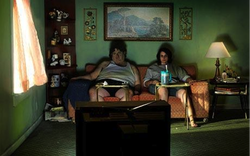 By Dr Harry “Screen time” is the term used to describe time spent in front of your TV, computer games, iPad, Nintendo DS, etc. Recent research suggests that the more time we spend in front of a screen, the higher the risk of adverse health outcomes. The average American child spends 7.5 hours per day in front of a screen (Canadians slightly more and for British children the figure is 6 hours per day). This is mostly discretionary screen time – in other words not related to school work. For adults the figure is higher, with more time spent in front of a screen than spent sleeping. In one study, more than 2 in 3 of us actively engage more than one screen simultaneously – such as watching TV and using a laptop.  Screen time is apparently much worse for your health than other sedentary behavior like reading a book or drawing/painting. One reason is that average blood pressure readings on individuals watching TV or playing computer games is higher than those engaging in other sedentary behavior which does not involve a screen. This is thought to be due to the TV and video game content, which is more stressful or exciting and hence raises blood pressure. Another reason is altered sleep patterns. Children who engage in more than 2 hours of screen time per day are less likely to sleep well and more likely to have sleep disorders and daytime tiredness, with the problems associated with this such as lack of attention and poor school performance. Screen time is also very distracting. You have probably read in earlier blogs that eating while watching TV is not advised because you end up eating more because you are failing to notice signals from your body which let you know you are full. This effect also has an impact on memory, which makes you more likely to eat again a few hours later, simply because you have “forgotten” just how much food you ate at the last meal. 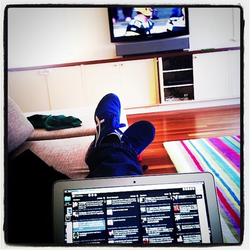 This effect on attention is obvious when you come home from work to greet your spouse and children only to find your greetings totally ignored because these family members are “engrossed” in screen time. You would not find it surprising therefore to learn that the increase in screen time is having negative effects on our social interaction. Far from “social networking” being social, as the name implies, it is having the opposite effect with real world relationships suffering. This lead to low self-esteem and negative psychological outcomes, such as depression, anxiety and stress disorders as we zone out of reality and rely more and more on a network of virtual “friends”. Obesity is on the increase due to many factors – one of which is less time spent on moderate to vigorous physical activity. The trend of increased screen time has a major effect on obesity promotion for the obvious reason that if you are spending a lot of hours in front of a screen, this is time which you are not able to use effectively at the gym, or outside the house exercising. Another fact is that your metabolic rate is slower during TV watching than during sleep. So when you think you are relaxing in front of the TV after a hard days work, perhaps you could just go to sleep instead – you could be burning more calories!
|
By Heather
|
Heather Katsonga-Woodward, a massive personal finance fanatic.
** All views expressed are my own and not those of any employer, past or present. ** Please get professional advice before re-arranging your personal finances.




 RSS Feed
RSS Feed


